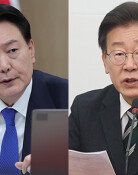Chinese president`s role after N.K.-Japan agreement
Chinese president`s role after N.K.-Japan agreement
Posted June. 02, 2014 05:30,
This reporter recently asked a Japanese government official about the outlook of North Korea-Japan contact. He said, We are taking steps to sanction North Korea, adding, We will not take any North Korea policy that is incompatible with interests of neighboring countries including the U.S. His remarks sounded convincing because Japan has been more surprised than Korea at the Norths firing of long-range missiles.
However, the North Korea-Japan Stockholm Agreement signed in May illustrated that Japan is taking an independent path in dealing with North Korea affairs. Japan is expected to argue that it will only lift bilateral sanctions and the framework for existing North Korean sanctions led by the U.S. will remain completely intact. However, Japans independent sanctions are not independent in themselves, but a core pillar that helps sustain the international communitys sanctions against the North. Changes of structure in sanctions that will derive from the North Korea-Japan agreement could unfold into an unexpected direction.
More than anything, attention is focusing on what stance China that holds key to Korean Peninsula affairs will take. North Korea is a key factor that enables China to realize its security interests. If Washington-Beijing relations improve, the Norths strategic value declines to China. In contrast, if the U.S. pressure on China increases as in the present, China cannot afford to ignore the Kim Jong Un regime of North Korea regardless of "problems North Korea creates in front of the entrance to China."
China has kept a watchful eye on the U.S only since Japan was not a major variable. But Japan suddenly left the network of siege surrounding North Korea. In fact, the North stabbed China in the back as the North joined hands with Japan, the archrival of China in the issue of history and territory.
However, China wants stability of the North Korean regime not only as nominal cause but also in practicality. There is no pretext for China to oppose Japans lifting of sanctions against money transfer and trade resumption with the Stalinist country. Moreover, China will pay attention to the fact that Japan has started to raise its own voice independently from those of the U.S. and South Korea. This is because the line of countries involved Korean Peninsula issues will diversify from the two groups of North Korea + South Korea, the U.S. and Japan into North Korea, Japan, + South Korea and the U.S., or North Korea + Japan, and South Korea and the U.S. and because the loosening of the South Korea-U.S.-Japan collaboration over North Korea affairs could affect the collaboration with China.
Nevertheless, China cannot remain idle while the North Korea-Japan contact lead to weakening of its control of North Korea. As North Korea-Japan ties come closer, China will seek to strengthen centripetal force over North Korea through diverse measures. If this happens, we cannot rule out malign scenarios that the South Korea-China relations, which the Park Geun-hye administration barely managed to restore, would deteriorate again, or South Korea could pin its hope on China even more to resolve North Korean nuclear issues. Despite being burdened about Japan`s uncoordinated act in Korean Peninsula affairs, the U.S. cannot take proactive measures due to the China variable. Hence, chances are high that only South Korea could be forced into an embarrassing situation.
Chinese President Xi Jinping will make a state visit to South Korea soon. He could be the first Chinese leader ever to visit the South before visiting the North. He will likely take bold acts during his visit to South Korea as well. However, as evidenced by the fact that South Korea-China relations have progressed at a snails phase only in the security cooperation field since the normalization of the South Korea-China ties in 1992, there exist barriers, which are difficult to overcome. This is due to the variables of the U.S. and North Korea. It is not important whether Xi first visits Pyongyang or Seoul since diplomatic activities could change even if diplomatic policy does not change.
Xis official visit to South Korea should not end merely with rhetoric exuding déjà vu, such as joint response to North Koreas nuclear weapons, and expansion of economic cooperation. We must read through President Xi how China is to intervene in a new Korean Peninsula structure that Japan is creating, and how to cope with China accordingly, and clearly suggest our demands. Changes of political situations surrounding the Korean Peninsula are too pressing and serious for South Korea to be complacent with Xis visit to Seoul prior to Pyongyang.







